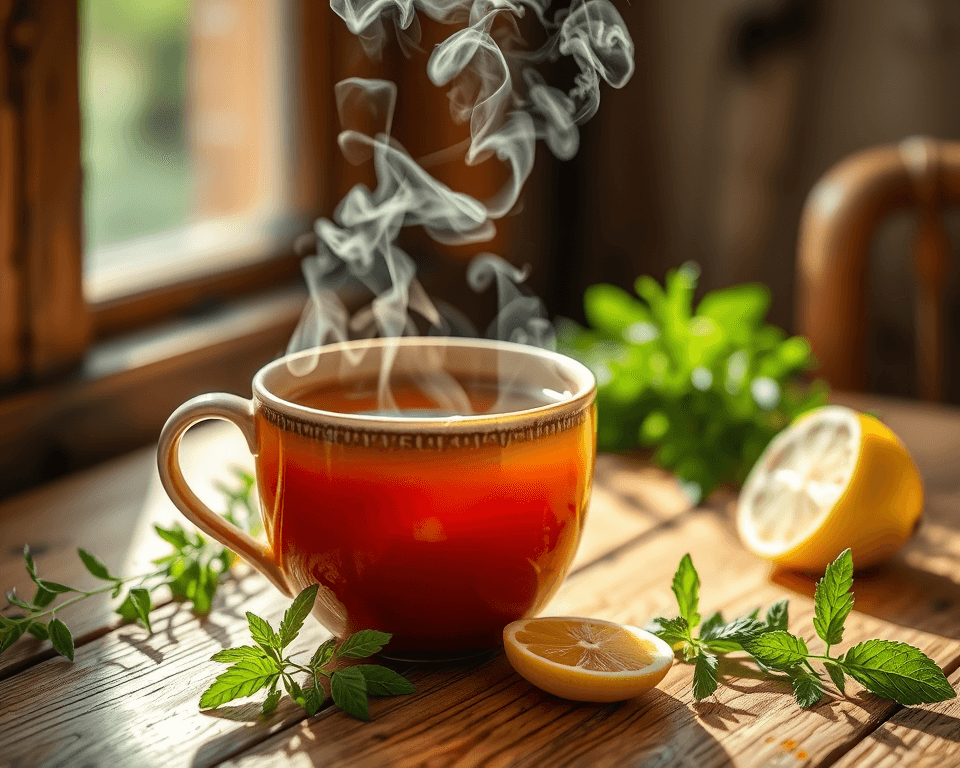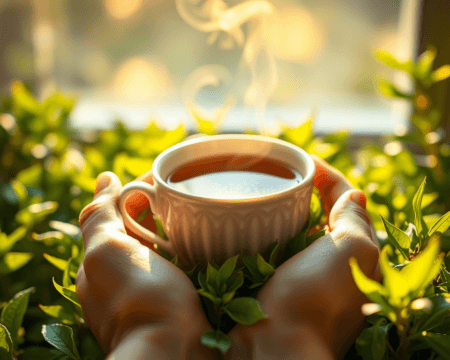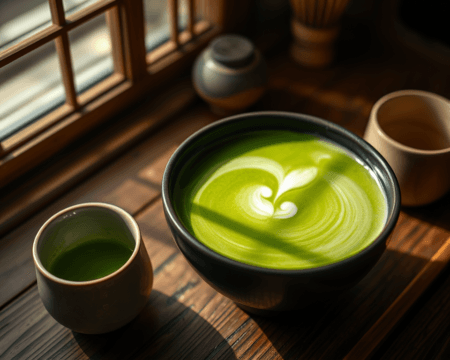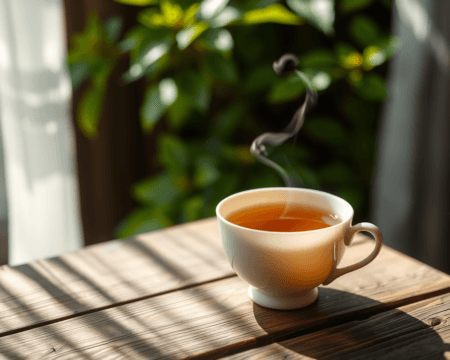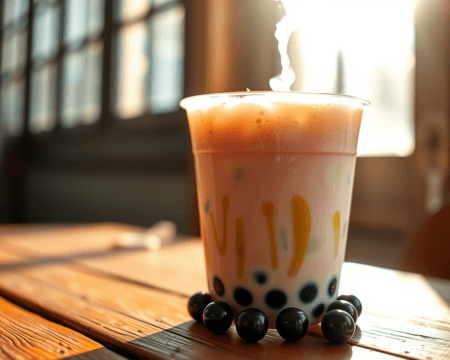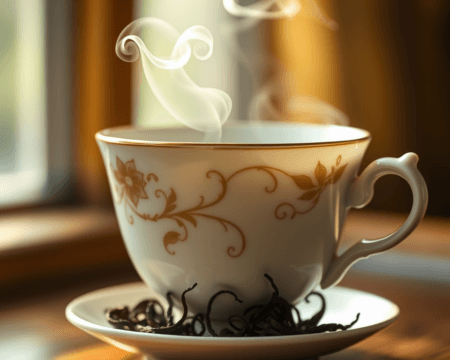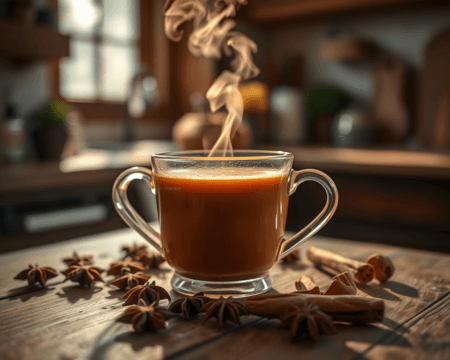Cleansing tea isn’t just some fad your aunt swears by after her weekend yoga retreats. It’s a powerful holistic tool for anyone serious about their health. Whether you’re looking to shed a few pounds, detoxify, or just feel fresher overall, cleansing tea packs a punch. Trust me, I’ve been there—chugging down a cup of this herbal magic really does wonders for the body and mind.
But what’s the real deal with cleansing tea? How does it work, what’s in it, and what are the benefits? I’m spilling the tea—pun totally intended—on everything you need to know.
Key Takeaways
- Cleansing tea aids in detoxification and supports your body’s natural processes.
- Key ingredients like dandelion and ginger have significant health benefits, from digestion to immune support.
- User experiences highlight both benefits and personalized needs, making it important to choose the right blend for you.
- Understand the potential side effects and who should steer clear of cleansing teas.
- Crafting your own cleansing tea at home is not just appealing but also allows for a customizable wellness tool.
Understanding Cleansing Tea: What It Is and How It Works
The Concept of Cleansing
Cleansing tea essentially means using a blend of herbs to support your body’s natural detoxification processes. Think of it as a gentle nudge to your system, helping to clear out the gunk that builds up due to toxins, processed foods, and everyday stress. The concept isn’t new—it’s been around for centuries, drawing on traditional methods that span various cultures. With natural remedies like herbal teas, everyone can embrace a bit of holistic health.
The cleansing process involves organs like your liver, kidneys, and colon doing their thing to maintain your well-being. If you give them a helping hand with the right ingredients, they can perform their functions better. Who doesn’t want that?
How Cleansing Tea Affects the Body
Wanna know how it hits? Cleansing tea has a direct physiological effect. Ingredients typically found in these blends—like ginger or peppermint—can significantly influence your digestive health and metabolism.
For instance, ginger has active compounds that not only help with indigestion but also rev up your metabolic function. Meanwhile, dandelion is often praised for its ability to support liver function and boost immune support. Feeling sluggish? A couple of cups can help you feel energized, like you’ve just chugged a refreshing glass of hydration.
Common Ingredients in Cleansing Tea
Popular Herbs and Their Benefits
When it comes to cleansing tea, the star players are the herbs themselves. Let’s break down some of the big hitters:
- Dandelion: Not just a weed; this little herb is a powerhouse for liver function. It helps your body flush out toxins and manages digestion.
- Ginger: A classic. It’s potent for digestive woes and can help ease inflammation. It’s like a warm hug for your stomach.
- Green Tea: A fan favorite—its antioxidant effects are legendary, helping to combat free radicals in your body.
- Peppermint: Not only does it add a refreshing burst of flavor, but it also aids digestion and can help relieve bloating.
- Turmeric: Known for its anti-inflammatory properties —this golden herb can help reduce overall inflammation in your body.
These herbs work together like a well-oiled machine to provide holistic support. They don’t just taste great; they come packed with active compounds that hit various health outcomes from weight management to better hydration.
Understanding Ingredient Synergies
Now, let’s talk about synergy. When you think about cleansing tea, it’s not just about choosing one hero ingredient. The magic happens when you combine complementary herbs to create a balance of flavors and enhanced effects. Imagine a tea blend that combines detoxifying dandelion with the zesty kick of ginger. It’s not only delicious but it boosts the detox and digestive powers.
You can craft your own unique blends to cater to what you need—whether you want extra metabolism help or something soothing for your digestion. Mixing and matching is key here!
Health Benefits of Cleansing Tea
Potential Benefits Supported by Scientific Research
If anyone tells you cleansing tea is a total myth—hold up! There’s empirical evidence to back up some of those health outcomes. Research shows that specific herbal components can lead to:
- Weight management: By aiding digestion and reducing bloating, cleansing tea can assist in maintaining a healthy weight.
- Antioxidant effects: Many herbs, especially green tea, are loaded with antioxidants that help fight oxidative stress in the body.
- Nutrient absorption: Improved digestion means your body absorbs nutrients better, fueling your body with the good stuff.
These benefits aren’t just wishful thinking; they’re rooted in science. So when you sip your cup, know there’s research that backs your choice.
User Experiences and Testimonials
Let’s get real for a second. I’ve talked to so many people (friends, family, you name it) about their experiences with cleansing tea. Some rave about how it helped alleviate their bloating after heavy meals. Others swear by their post-tea energy boosts.
For instance, one buddy of mine mixed dandelion, ginger, and a bit of lemon juice. She said within a week, she felt so much lighter and even noticed improved skin clarity. Community testimonies are powerful. They show you what’s actually hittin’ and what’s kinda just mediocre.
Approach testimonials with a grain of salt, though—everyone’s body is different. What works wonders for one person might not for another. But knowing that people out there are having real-life impacts is motivating!
Considerations and Possible Side Effects
Who Should Avoid Cleansing Tea?
Listen up: while cleansing tea can be fantastic, it’s not for everyone. If you have dietary restrictions or specific health conditions—like pregnancy or existing health issues—some formulas may not be suitable. Consider this a friendly warning.
For example, if you’re on medication for diabetes, some herbs might interfere with your levels. Always check with a health professional before diving headfirst into the tea scene, especially if you have pre-existing conditions.
Understanding the Myths vs. Facts
Cleansing tea has its fair share of myths floating around. You’ve heard ‘em—detox fads, rapid weight loss claims, and unrealistic promises. The reality? Many detox claims are unsubstantiated. A cup of tea is not a magic bullet for weight loss.
Stay grounded. Understand that effective cleansing is a process, not an overnight miracle. Dig into the evidence-based claims and prioritize health literacy. Ask questions, do your research, and don’t fall for the latest diet craze.
Creating Your Own Cleansing Tea at Home
Simple Recipes to Try
Now here’s where it gets exciting: making your own cleansing tea! It’s like a little potion you create just for you. Here’s a basic recipe to kick things off:
Ginger-Dandelion Detox Tea
– 1 cup of dandelion root (dried or fresh)
– 1 tablespoon of grated ginger
– 1 tablespoon of honey (optional)
– 3 cups of water
- Bring the water to a boil.
- Add dandelion root and ginger to the pot.
- Let it steep for 10-15 minutes.
- Strain, add honey if desired, and enjoy.
Customize as needed! Toss in some peppermint for freshness or a squeeze of lemon for zest. You’ll end up with your personalized blend tailored to your taste.
Tips for Choosing Quality Teas
When you’re out shopping for tea ingredients, don’t just grab the first box you see. Pay attention to sourcing. Look for organic options that don’t have fillers or artificial flavors. It makes a difference!
Check the labels critically. Get educated about which brands align with your values. Look for brands like Traditional Medicinals or Pukka Herbs, both known for quality herbal blends that maintain ingredient integrity. You want teas that could practically double as superfoods.
The Role of Cleansing Tea in Different Diets
Incorporating Cleansing Tea into Daily Routines
So, you’re ready to start sipping? Good choice! Integrating cleansing tea into your daily routine can be easy. Swap your morning coffee for a refreshing cup of cleansing tea. It’s a great way to kickstart your day, boost hydration, and support that metabolic engine.
You can even make it a ritual. Have a cup while you read your favorite book, or brew some in the afternoon when you hit that mid-day slump. It’s all about lifestyle integration.
Compatibility with Popular Diets (Paleo, Vegan, etc.)
Cleansing tea offers versatility. It’s compatible with nearly any diet you can think of—Paleo, Vegan, Keto—whatever your preference. It carries no major dietary restrictions and complements your food choices beautifully.
A vegan? Great! Boost your meals with cleansing tea and enhance your nutrient intake. Following a Paleo diet? Go for herbal blends that focus on natural ingredients—no problem there! It’s a perfect match, supporting your health objectives effortlessly.
Cleansing tea can become that reliable partner in your overall wellness strategy. You just need to find what works best for you and enjoy the journey.
Frequently Asked Questions
What are the main benefits of drinking cleansing tea?
Cleansing tea can support detoxification, improve digestion, boost the immune system, and promote overall wellness. Key ingredients like dandelion and ginger contribute to these benefits by facilitating digestion and providing antioxidants.
Can I use store-bought cleansing teas, or is homemade better?
Store-bought cleansing teas can be convenient and effective, but homemade versions allow for customization based on personal taste and health needs. Making your own also ensures control over ingredient quality and amounts.
Are there side effects associated with cleansing teas?
Some users may experience mild side effects such as upset stomach, diarrhea, or allergic reactions, especially to certain herbs. It’s important to research individual ingredients and consult with a healthcare professional if you have concerns.
Who should avoid cleansing teas?
Individuals with certain health conditions, such as liver disease, pregnancy, or those taking specific medications, should consult their doctor before using cleansing teas. Always prioritize safety by understanding how the ingredients may interact with your health status.
How often should I drink cleansing tea?
Frequency can vary based on individual health goals and responses. Generally, it’s safe to enjoy cleansing tea a few times a week, but listen to your body and adjust accordingly. Consulting a health professional for personalized advice is best.
What ingredients should I look for in a cleansing tea?
Key ingredients to consider include dandelion for liver support, ginger for digestion, peppermint for calming, and green tea for antioxidants. Choose based on your specific health needs and desired effects.
Can I drink cleansing tea while on medication?
It’s crucial to consult your healthcare provider if you’re on medication, as some herbal ingredients may interact or affect the efficacy of your prescription. They can help ensure you choose safe options.
How can I enhance the effectiveness of my cleansing tea?
To boost the effectiveness, consider adding lemon for vitamin C, honey for natural sweetness, or a pinch of cayenne pepper for added metabolism support. Staying hydrated and maintaining a balanced diet also complement tea’s benefits.
Is there a best time to drink cleansing tea?
The best time can vary depending on your goals. Many prefer morning to kickstart digestion and metabolism, while others may enjoy it in the evening as a relaxing ritual. Experiment to find what works best for you.




